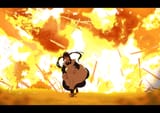Search Results
7/4/2025, 1:59:53 AM
>>96009384
I discussed the sort of game that I wanted to run with my group, and then went over the broad strokes of the important setting details that would more or less define character options. I answered any direct questions they had, and then once a certain amount of interest was confirmed I wrote up a bunch of setting details, including notes on the city a breakdown of its important areas, the factions that were in power struggle there, recent history, and a list of important npcs that anyone who lived there would be expected to know about by default at least in passing. This setting codex was then something they had constant access to, and is where we hosted characters sheets so they had a reason to go back to it, which meant that they didn't have to *memorize* all of my autistic setting lore. They could do a quick search to look up "Who the fuck is this guy?" when meeting someone that seemed important.
As the game has gone on, new details and NPCs have been added to account for things that the players have learned and people they have met over the course of their adventure. Just overall making it easier for them to keep the evolving web of the game's movers and shakers straight and also keep track of who they have met before and where they know them from.
"Oh, right, this is the guy who was in charge of that gang whose hideout we burned down. And he was working with this other guy we know."
"Oh, right, this is a reference to that weird metal we've found a couple of things made out of. We still don't know where that comes from yet, we should look into that."
While a lot of work, I think some kind of googledocs of wordanvil is basically required if you want your players to be able to engage with your setting if you care about actual roleplay and its not just a ripoff of something they are already familiar with. You simply cannot expect your players to be able to remember week-to-week the details of the world to the same fidelity as you have in your head.
I discussed the sort of game that I wanted to run with my group, and then went over the broad strokes of the important setting details that would more or less define character options. I answered any direct questions they had, and then once a certain amount of interest was confirmed I wrote up a bunch of setting details, including notes on the city a breakdown of its important areas, the factions that were in power struggle there, recent history, and a list of important npcs that anyone who lived there would be expected to know about by default at least in passing. This setting codex was then something they had constant access to, and is where we hosted characters sheets so they had a reason to go back to it, which meant that they didn't have to *memorize* all of my autistic setting lore. They could do a quick search to look up "Who the fuck is this guy?" when meeting someone that seemed important.
As the game has gone on, new details and NPCs have been added to account for things that the players have learned and people they have met over the course of their adventure. Just overall making it easier for them to keep the evolving web of the game's movers and shakers straight and also keep track of who they have met before and where they know them from.
"Oh, right, this is the guy who was in charge of that gang whose hideout we burned down. And he was working with this other guy we know."
"Oh, right, this is a reference to that weird metal we've found a couple of things made out of. We still don't know where that comes from yet, we should look into that."
While a lot of work, I think some kind of googledocs of wordanvil is basically required if you want your players to be able to engage with your setting if you care about actual roleplay and its not just a ripoff of something they are already familiar with. You simply cannot expect your players to be able to remember week-to-week the details of the world to the same fidelity as you have in your head.
Page 1
